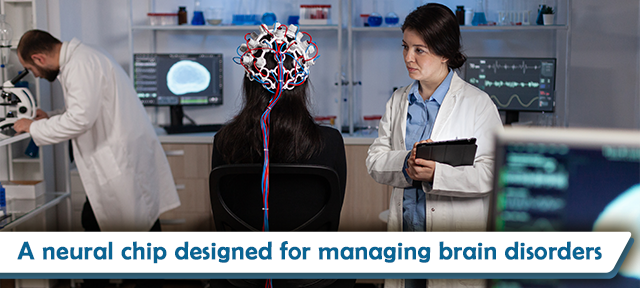Researchers from the Integrated Neurotechnologies Laboratory and the Laboratory for Soft Bioelectronic Interfaces in Switzerland have created NeuralTree, a closed-loop neuromodulation system-on-chip designed to detect and alleviate symptoms of neurological disorders such as epilepsy and Parkinson’s. NeuralTree combines the accuracy of neural networks and the hardware efficiency of decision tree algorithms, making it highly efficient and versatile. The chip’s 256-input channels and small design size allow for scalability to more channels. The system can detect a broader range of symptoms than other devices and can be updated to keep up with changing neural signals.


